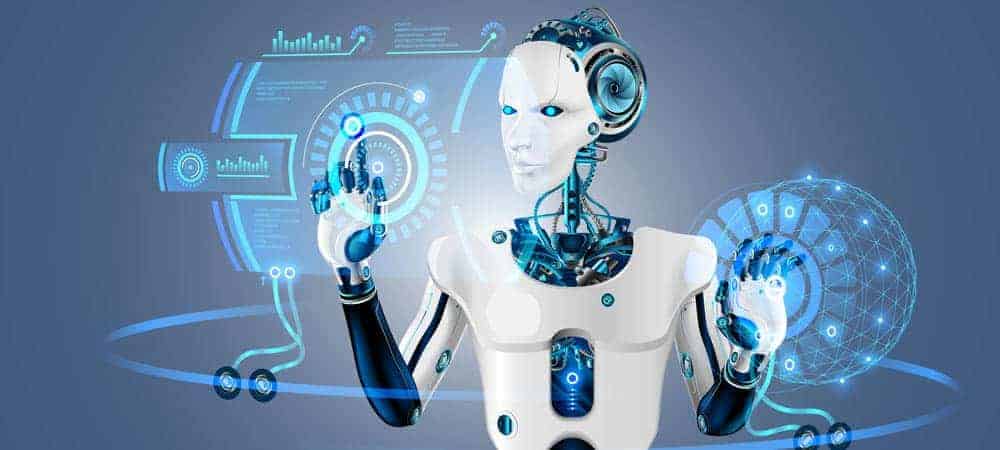Artificial intelligence: Man versus machine


The members of SAP's Executive Board like to talk about AI, but obviously don't have the faintest idea about it. CFO Luka Mucic tried to minimize fears about AI in an interview with Handelsblatt this year.
He said that SAP would of course disclose all the algorithms of a machine learning algorithm as a matter of responsibility to its existing customers. A noble approach that has only one flaw:
Did he mean the long short term memory algorithms of a neural network for machine/deep learning? These have been known through numerous white papers for more than 20 years, when Long-Short-Term-Memory was developed by Sepp Hochreiter and Jürgen Schmidhuber.
Or does Luka Mucic mean the result of a self-learning neural network? These results are spectacular, as has been shown in recent years with the board game Go - only unfortunately, the learned connections of a neural network cannot be read out. No one can yet explain why Google's Go computer plays the way it does, and always wins!
SAP is beaten
Consequently, analyst and Barc managing director Carsten Bange also wrote in his blog last year:
"Leonardo is SAP's attempt to counter other vendors like IBM with Watson or Microsoft with Azure with a cloud platform with advanced analytics algorithms and capabilities.
But the train has sailed in machine learning for differentiation via algorithmic capabilities or development frameworks; SAP won't catch up here."
In order to lead the Leonardo framework and S/4 with Hana in the direction of the "Intelligent Enterprise", SAP will have to enlist the help of many market companions such as Microsoft, Nvidia, IBM, Google and the open source community. SAP can no longer win any laurels in the AI scene on its own and on the basis of its own expertise.
AI Partnerships
Not invented here! But SAP still has the chance to enrich its own applications with AI through cooperation and learning with and from others.
This makes it especially important for SAP's existing customers to learn what the AI community has to offer in general and for B2B applications in particular.
With leonardo.report, E-3 Verlag will provide an overview of the topic of AI and SAP integration on a quarterly basis as a magazine and continuously online.
Looking beyond SAP's horizons is becoming important for partners and existing customers to efficiently implement the digital transformation.
Particularly in the area of AI, there is now a broad, very inexpensive offering from the cloud providers Microsoft, AWS and Google, as well as an almost unmanageable offering from the open source scene.
The opportunities are real to generate added value with machine learning - even if data protection issues have not yet been resolved everywhere.
In the future, customers will be able to access SAP product support directly from an application via the SAP CoPilot digital assistant. Support requests from existing customers will be analyzed using artificial intelligence and chat functions.
The Leonardo framework provides machine learning and intent matching functions for this purpose. CoPilot first processes the text transmitted as an informal support request and then provides individual support based on the available information about the business context.
"In the age of smart enterprises, support services also need to be directly and easily available"
says Andreas Heckmann, SAP SVP for Digital Business Services and Head of Support.
Data become products
The integrated support function is available in cloud solutions based on S/4 Hana Cloud. The new support uses natural language processing technologies to quickly understand questions and offer customers customized solution guidance through their preferred channel: for a natural dialog between humans and machines.
But natural language processing does not currently comply with EU data protection regulations for business processes and customer support. Therefore, currently only customers whose processes are not subject to EU data protection regulations can use the concept.
Via the chat function of the CoPilot digital assistant, users can discuss situation-specific tasks directly with an internal key user and ask questions.
Chancellor Angela Merkel declared in the Bundestag in mid-May:
"To think we can be ahead in artificial intelligence and be as restrictive as possible with data is just like trying to breed cows and not giving them feed. [...] Because you can develop products from data."
The German Digital Economy Association (BVDW e. V.) has repeatedly pointed out this important insight in the past and praises the Chancellor's new understanding of digitization. Merkel described digitization as Germany's "most ambitious project." "The realization comes late, but at least it comes," commented BVDW President Matthias Wahl.





